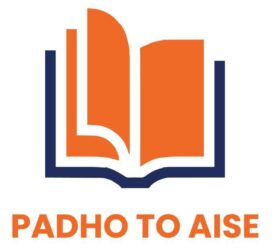UGC NET JRF Political Science Paper-2 Online Course.
EDUCATOR: ABHISHEK KUMAR MISHRA (3-TIMES JRF QUALIFIED, FOUNDER OF PADHO TO AISE.
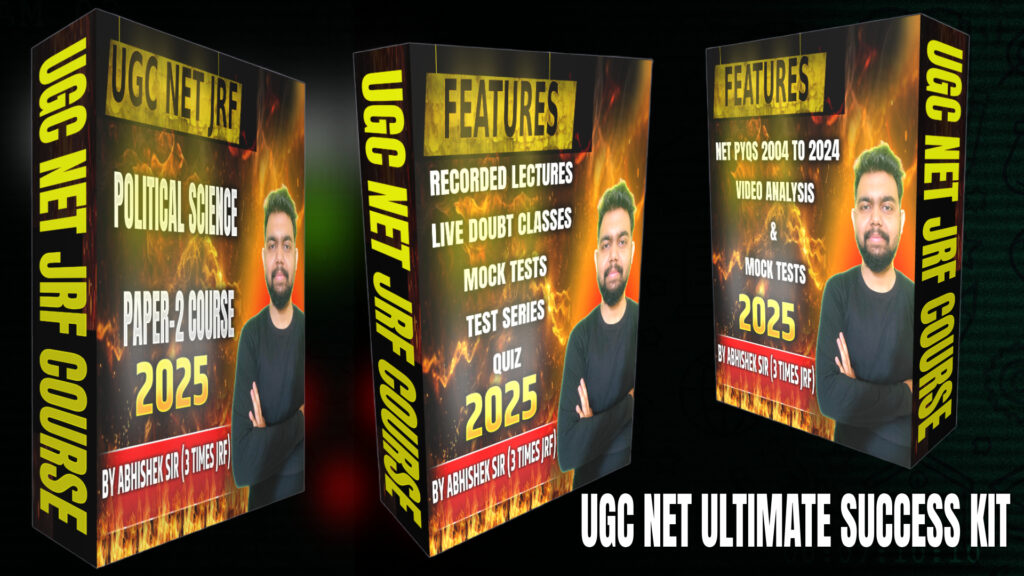
Course Details: Strategy, and Realities of Other Coaching Institutes.
What You will get in Our Course?
Who can Appear in UGC NET: Eligibility
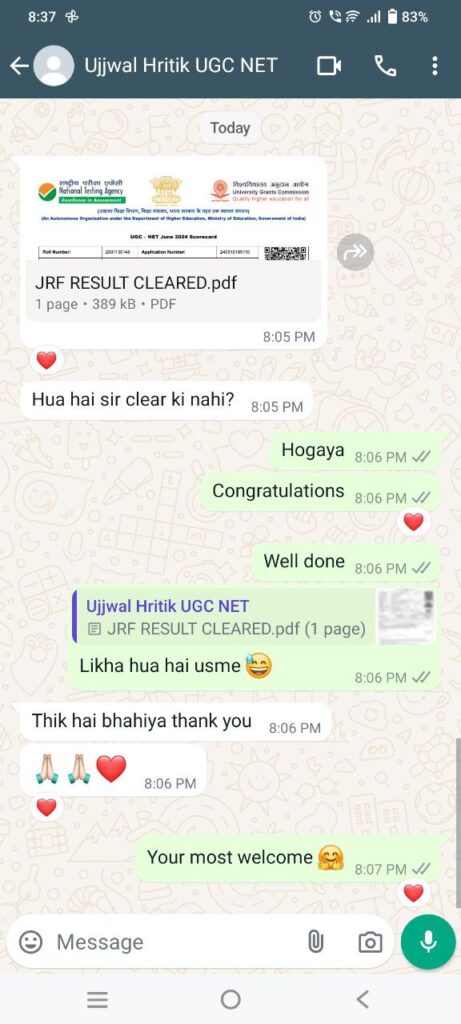
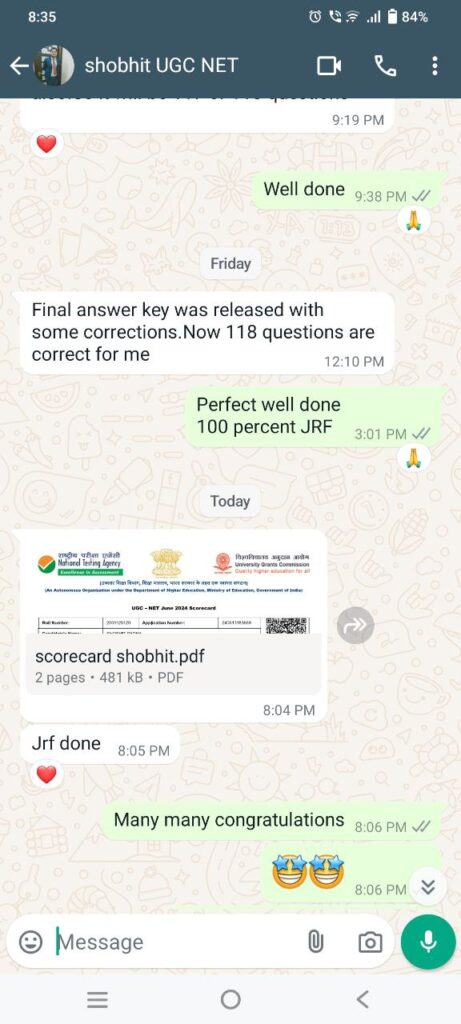
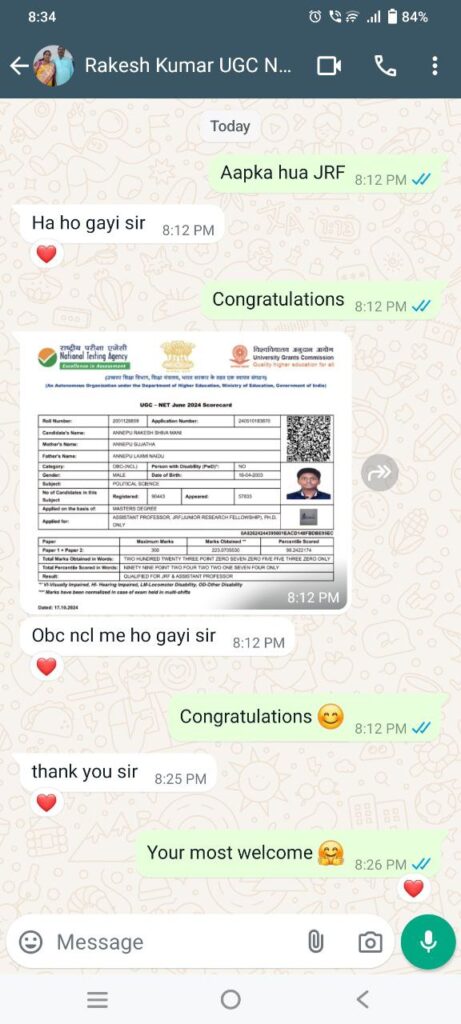
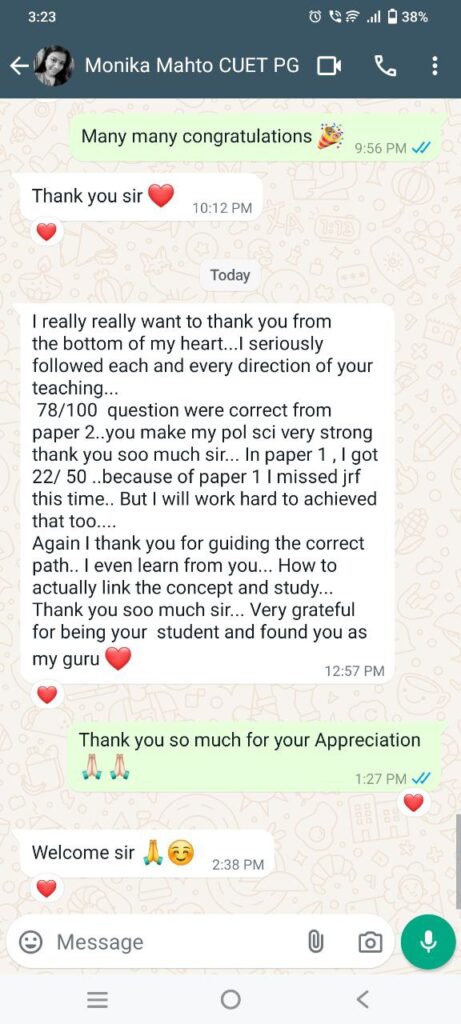
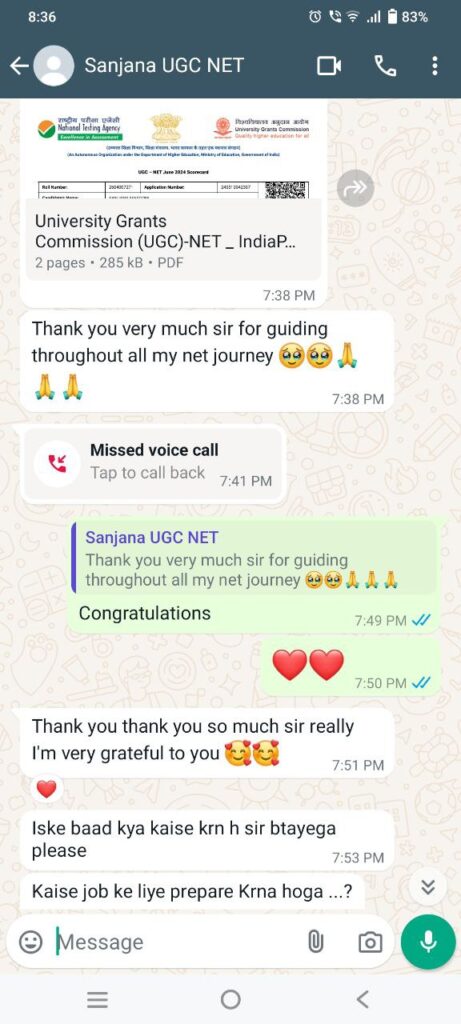
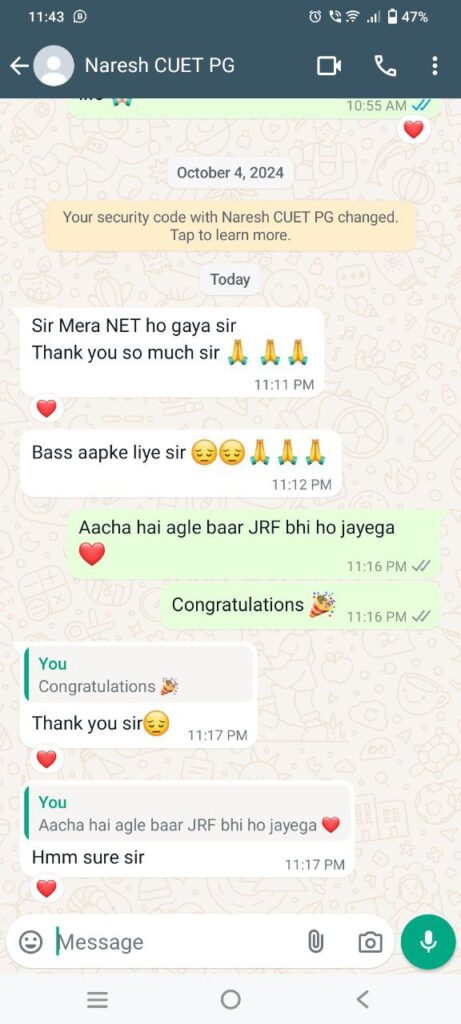
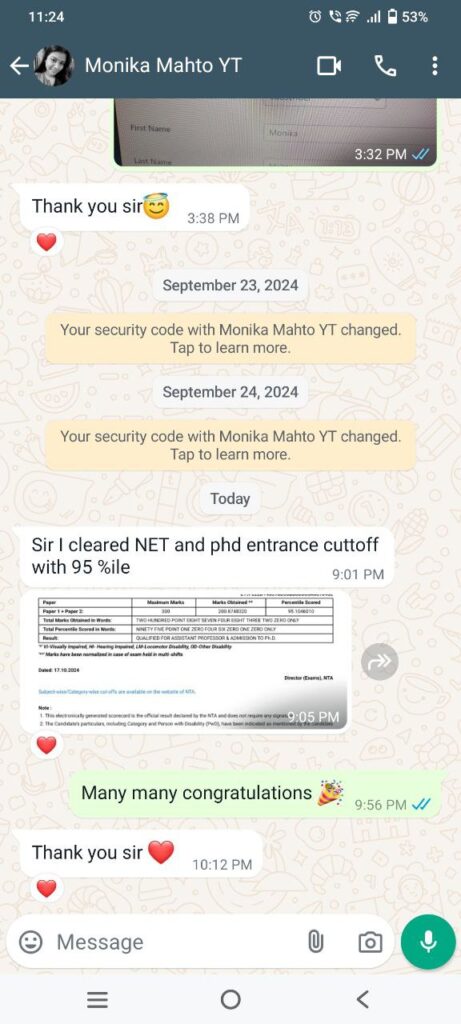

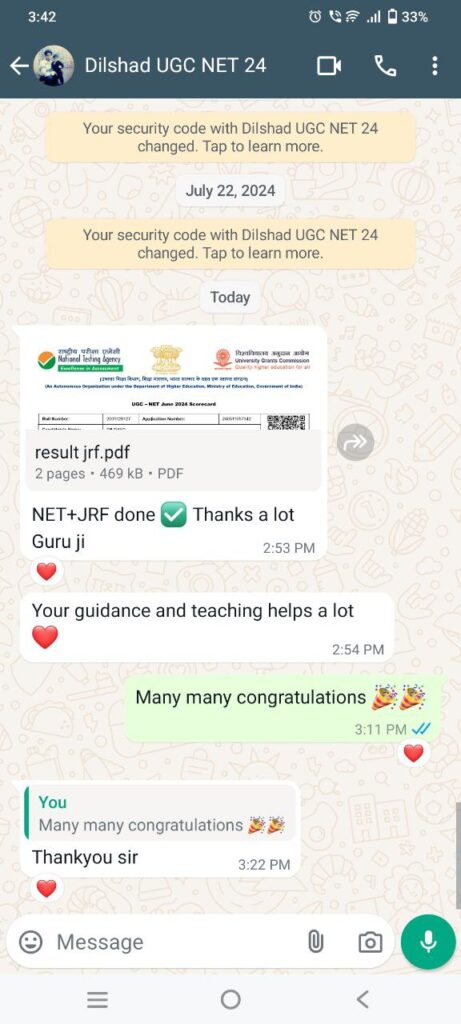

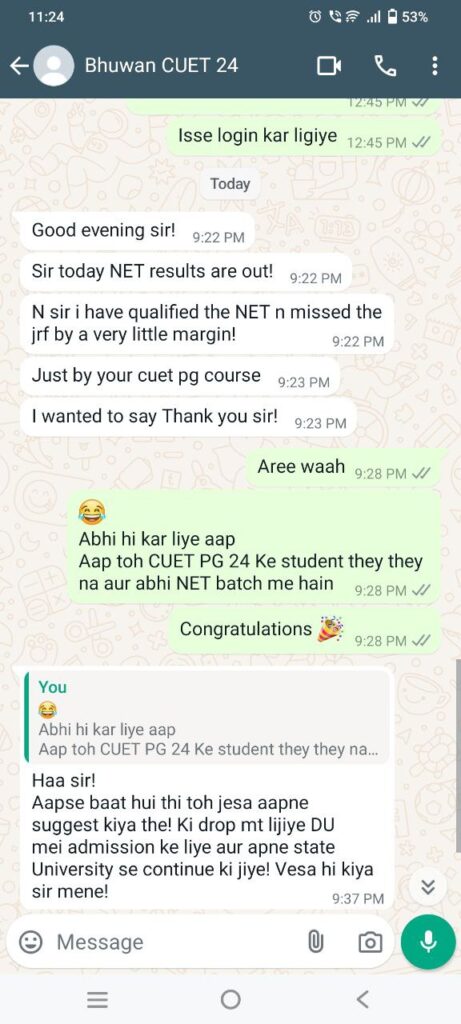
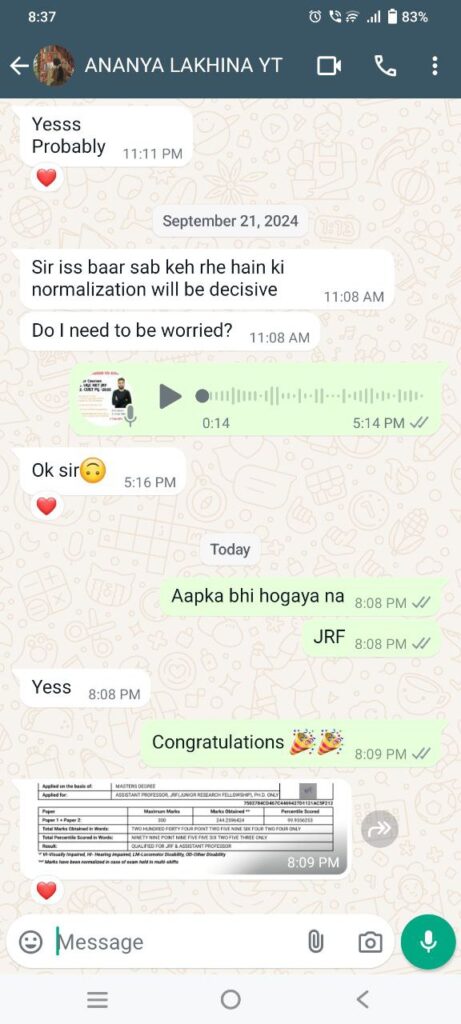
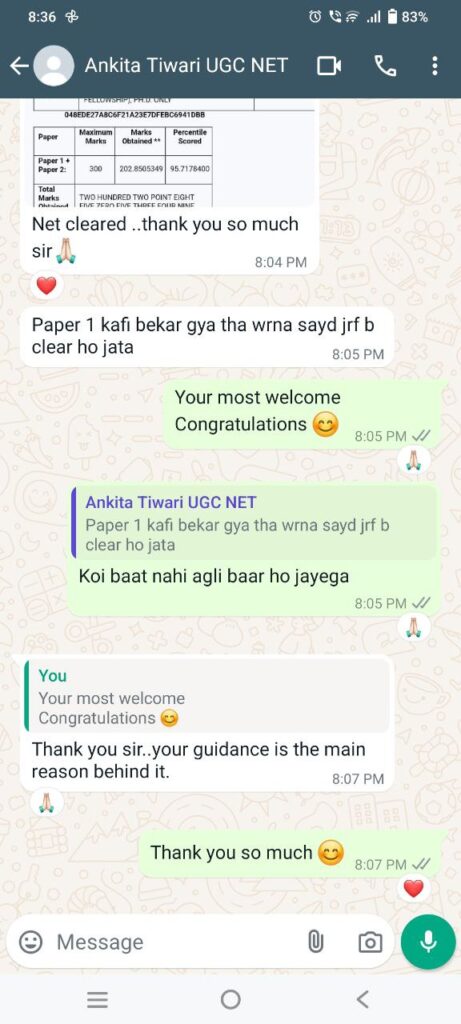
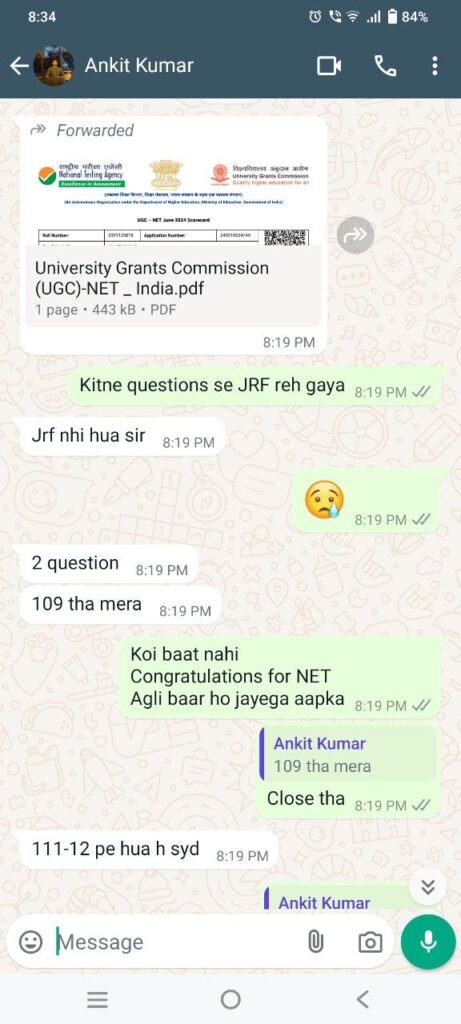
Why to Join PADHO TO AISE UGC NET Batch?
-
Concept, Knowledge & Understanding
Many Political Science graduates and postgraduates struggle to find employment or pass exams in their field. The main issue is a lack of deep understanding of the subject. In college, students often study just before exams and may still score well, but real-life demands knowledge over marks. This course aims to enhance your understanding and concepts, empowering you in the subject.
-
Foundation for UPSC PSIR
Many Civil Services aspirants choose Political Science and International Relations for the UPSC exam but struggle despite spending on expensive coaching, often due to a lack of basic knowledge. This course covers key PSIR topics, giving you a strong foundation to make your UPSC journey easier.
-
Be Prepared for UGC NET JRF
Cracking the UGC NET JRF Political Science Exam is essential for aspiring Assistant Professors in India. You can take the exam after enrolling in an MA in Political Science. Achieving JRF status not only qualifies you for a monthly ₹40,000 stipend during a Ph.D. but also opens doors to academic excellence, enhancing career prospects and deepening your understanding of political issues. It's a key step toward a rewarding career in academia.
-
10000+ Questions for Practice
Prepare confidently for your UGC NET JRF Political Science exam with our comprehensive course offering over 10,000 practice questions. Designed to cover every topic in-depth, these questions help you grasp complex concepts, improve problem-solving skills, and boost your exam readiness. Our extensive question bank ensures you have ample practice to master the syllabus and tackle any challenge on exam day. Join now and pave your way to success with unparalleled preparation resources tailored for UGC NET JRF aspirants.
-
Affordable Paper-1 Course
We are also providing affordable UGC NET JRF Paper-1 Course at a very affordable price, Check Out on Our App.
Features of UGC NET JRF Political Science Batch.
-
UGC NET Paper-1 Free Notes
Don't stress over UGC NET Paper-1 prep. Our free notes break down all the key topics into easy-to-understand points. Perfect for quick learning or last-minute review. Download now and make studying a breeze!
-
Recorded Lectures
In this course, we are providing you with more than 150 concept lectures, which will empower you in Political Science and will ensure your success in UGC NET JRF Political Science.
-
Live Lectures for Questions & Doubts
We are going to discuss 15 important questions from each lecture so that you can evaluate your concepts. Do not worry about doubts, you can also ask doubts in the same lecture.
-
Theme-Wise Mock Test with Video Analysis
We are also providing a Theme-Wise Mock Test to make to better by more practice. We are offering more than 10 Theme-Wise Mocks. You can attempt them and in case of doubt, you can watch video analysis related to them.
-
Test Series with Video Analysis
We will also provide 10 full mocks for better results based on the latest pattern of CUET PG. You can attempt them and in case of doubt you can also watch the analysis video.
-
PDF Notes
We also provide PDF Notes after every class in our PADHO TO AISE App.
Complete Syllabus of UGC NET JRF Political Science
Subject: POLITICAL SCIENCE
Code No.: 02
SYLLABUS
Unit – 1: Political Theory
- Concepts: Liberty, Equality, Justice, Rights, Democracy, Power, Citizenship.
- Political Traditions: Liberalism, Conservatism, Socialism, Marxism, Feminism, Ecologism, Multiculturalism, Postmodernism.
Unit – 2: Political Thought
- Thinkers: Confucius, Plato, Aristotle, Machiavelli, Hobbes, Locke, Rousseau, Hegel, Mary Wollstonecraft, John Stuart Mill, Karl Marx, Gramsci, Hannah Arendt, Frantz Fanon, Mao Zedong, John Rawls.
Unit – 3: Indian Political Thought
- Thinkers and texts: Dharamshastra, Kautilya, Aggannasutta, Barani, Kabir, Pandita Ramabai, Bal Gangadhar Tilak, Swami Vivekanand, Rabindranath Tagore, M.K. Gandhi, Sri Aurobindo, Periyar E.V. Ramasamy, Muhammad Iqbal, M.N. Roy, V.D. Savarkar, Dr. B.R. Ambedkar, J.L. Nehru, Ram Manohar Lohia, Jaya Prakash Narayan, Deendayal Upadhyaya.
Unit – 4: Comparative Political Analysis
- Approaches: Institutional, Political Culture, Political Economy, New Institutionalism; Comparative Methods.
- Colonialism and Decolonization: Forms of colonialism, anti-colonial struggles, decolonization.
- Nationalism: European and non-European.
- State Theory: Debate over the nature of the state in capitalist and socialist societies; post-colonial state; welfare state; globalization and nation-states.
- Political Regimes: Democratic (Electoral, Liberal, Majoritarian, Participatory) and non-democratic regimes (Patrimonialism, Bureaucratic authoritarianism, Military dictatorship, Totalitarianism, and Fascist).
- Constitutions and Constitutionalism: Forms of constitutions, rule of law, judicial independence, liberal constitutionalism; emergency powers and crisis of constitutionalism.
- Democratization: Democratic transition and consolidation.
- Development: Underdevelopment, Dependency, Modernization, World Systems Theory, Development, and Democracy.
- Structures of Power: Ruling class, power elites, democratic elitism.
- Actors and Processes: Electoral Systems, Political Parties and Party System, Interest groups, Social movements, new social movements, Non-Governmental Organisations (NGOs), civil society campaigns; Revolutions.
Unit – 5: International Relations
- Approaches to the study of International Relations: Idealism, Realism, Structural Marxism, Neoliberalism, Neorealism, Social Constructivism, Critical International Theory, Feminism, Postmodernism.
- Concepts: State, state system, non-state actors, Power, Sovereignty, Security: traditional and non-traditional.
- Conflict and Peace: Changing Nature of Warfare; Weapons of mass destruction; deterrence; conflict resolution, conflict transformation.
- United Nations: Aims, Objectives, Structure, Evaluation of the Working of UN; Peace and Development perspectives; Humanitarian intervention. International law; International Criminal Court.
- Political Economy of IR: Globalisation; Global governance, Bretton Woods system, North-South Dialogue, WTO, G-20, BRICS.
- Regional Organisations: European Union, African Union, Shanghai Cooperation Organisation, ASEAN.
- Contemporary Challenges: International terrorism, Climate change, Environmental Concerns, Human Rights, Migration and Refugees, Poverty and Development, Role of Religion, Culture, Identity Politics.
Unit – 6: India’s Foreign Policy
- Perspectives on India’s Foreign Policy: India’s Identity as postcolonial, development, rising power, emerging political economy.
- Continuity and Change in India’s Foreign Policy: Principles and determinants; Non-Alignment Movement: historical background, relevance; India’s Nuclear Policy.
- India’s Relations with Major Powers: USA, USSR/Russia, China.
- India’s Engagement with Multipolar World: Relations with European Union, BRICS, ASEAN, Shanghai Cooperation Organisation, African Union, Southern African Development Community, Gulf Cooperation Council.
- India’s Relations with Neighbourhood: SAARC, Gujral doctrine, Look East/Act East, Look West.
- India’s Negotiation Strategies in International Regimes: United Nations, World Trade Organisation, International Monetary Fund, Intergovernmental Panel on Climate Change.
- Contemporary Challenges: Maritime security, energy security, environmental security, migrants and refugees, water resources, international terrorism, cyber security.
Unit – 7: Political Institutions in India
- Making of the Indian Constitution: Colonialism heritage, contribution of the Indian National Movement.
- Constituent Assembly: Composition, ideological moorings, constitutional debates.
- Philosophy of the Constitution: Preamble, Fundamental Rights, Directive Principles.
- Constitutionalism in India: Democracy, social change, national unity, checks and balances, basic structure debate, constitutional amendments.
- Union Executive: President, Prime Minister, Council of Ministers.
- Union Parliament: Structure, role, functioning, parliamentary committees.
- Judiciary: Supreme Court, High Court, judicial review, judicial activism, judicial reform.
- Executive and Legislature in the States: Governor, Chief Minister, State Legislature.
- Federalism in India: Strong centre framework, asymmetrical federal provisions, intergovernmental coordination mechanisms, inter-state council, emerging trends.
- Electoral Process and Election Commission of India: Conduct of elections, rules, electoral reforms.
- Local Government Institutions: Functioning and reforms.
- Constitutional and Statutory Bodies: Comptroller and Auditor General, National Commission for Scheduled Castes, National Commission for Scheduled Tribes, National Commission for Human Rights, National Commission for Women, National Commission for Minorities.
Unit – 8: Political Processes in India
- State, Economy, and Development: Nature of Indian state, development planning model, New Economic Policy, growth, human development.
- Process of Globalisation: Social and economic implications.
- Identity Politics: Religion, tribe, caste, region, language.
- Social Movements: Dalit, tribal, women, farmers, labor.
- Civil Society Groups: Non-party social formations, NGOs, social action groups.
- Regionalisation of Indian Politics: Reorganization of Indian states, states as political and economic units, sub-state regions, regional disparities, demand for new states.
- Gender and Politics in India: Issues of equality and representation.
- Ideology and Social Basis of Political Parties: National and state parties.
- Electoral Politics: Participation, contestation, representation, emerging trends.
Unit – 9: Public Administration
- Public Administration: Meaning, evolution, public vs. private administration.
- Approaches: System Theory, Decision Making, Ecological Approach.
- Public Administration Theories and Concepts: Scientific Management Theory, Rational Choice Theory, New Public Administration, Development Administration, Comparative Public Administration, New Public Management, changing nature due to liberalisation and globalisation.
- Theories and Principles of Organization: Scientific Management, Bureaucratic Theory, Human Relations Theory.
- Managing the Organization: Theories of leadership, motivation.
- Organisational Communication: Chester Barnard principles, information management.
- Managing Conflict: Mary Parker Follett.
- Management by Objectives: Peter Drucker.
Unit – 10: Governance and Public Policy in India
- Governance, Good Governance, Democratic Governance: Role of state, civil society, individuals.
- Accountability and Control: Legislative control, budgetary control, control via parliamentary committees, judicial control, corruption, administrative reforms.
- Institutional Mechanisms for Good Governance: Right to Information, Consumer Protection Act, Citizen Charter, grievance redress mechanisms like Ombudsman, Lokpal, Lokayukta.
- Grassroots Governance: Panchayati Raj Institutions.
- Planning and Development: Decentralized planning, sustainable development, e-governance, NITI Aayog.
- Public Policy as Socio-economic Development Tool: Policies on housing, health, food security, MNREGA, NRHM, RTE.
- Monitoring and Evaluation: Jansunwai, social audit.
